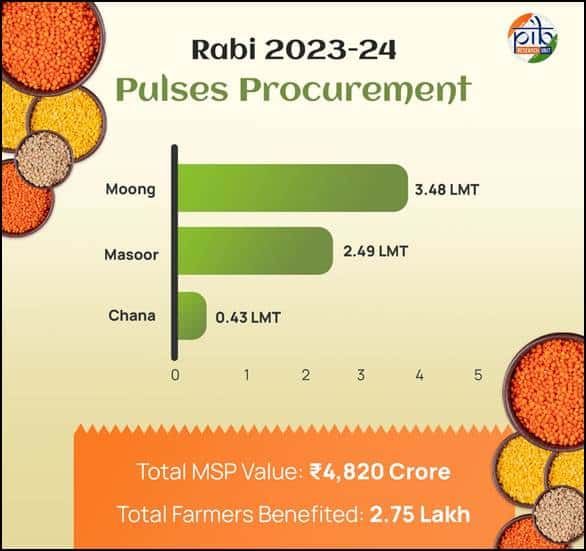Empowering Farmers: The PM-AASHA Initiative

The Ministry of Agriculture and Farmers Welfare in India has launched several initiatives aimed at enhancing farmers’ incomes. One of the most significant measures is the Minimum Support Price (MSP) policy, which guarantees farmers a minimum price for their produce. This policy covers major agricultural commodities, including cereals, pulses, oilseeds, and cotton, among others. By ensuring that farmers receive a fair price for their crops, the government encourages higher investments in agriculture, ultimately boosting production and productivity. The MSP is set at 1.5 times the Cost of Production (CoP) for 24 crops, providing a safety net for farmers.
Understanding the PM-AASHA Scheme
The Pradhan Mantri Annadata Aay SanraksHan Abhiyan (PM-AASHA) is a comprehensive scheme designed to provide price assurance for farmers. Launched in September 2018, PM-AASHA aims to reduce post-harvest distress selling and promote crop diversification towards pulses and oilseeds. The scheme encompasses three main components: the Price Support Scheme (PSS), the Price Deficiency Payment Scheme (PDPS), and the Market Intervention Scheme (MIS).
The PSS is implemented at the request of state governments that agree to exempt the Mandi tax on the procurement of notified crops. Starting from the 2024-25 procurement season, states can procure up to 25% of their production under this scheme. If they reach this limit, they can request additional procurement based on national production figures. This approach aims to achieve self-sufficiency in pulses and oilseeds, particularly for crops like Tur, Urad, and Masoor.
The Impact of MSP on Farmers’ Livelihoods
The MSP policy and the PM-AASHA scheme have significantly impacted the livelihoods of small and marginal farmers. By providing a safety net, these initiatives help farmers avoid selling their crops at lower market prices during harvest time. This assurance leads to timely payments and reduces post-harvest losses, directly improving farmers’ economic conditions.
For instance, during the Rabi 2023-24 season, the government procured 6.41 LMT of pulses worth Rs 4,820 crore from 2.75 lakh farmers. Similarly, 12.19 LMT of oilseeds valued at Rs 6,900 crore were procured from 5.29 lakh farmers. These figures highlight the government’s commitment to supporting farmers and ensuring their financial stability. The intervention under the PSS scheme has proven particularly beneficial, as seen in the procurement of 5.62 LMT of soybeans during the ongoing Kharif season, which marked the highest quantity ever procured.
Addressing Market Fluctuations with Innovative Schemes
The PM-AASHA initiative also includes innovative schemes like the Price Deficiency Payment Scheme (PDPS) and the Market Intervention Scheme (MIS). The PDPS aims to ensure that oilseed producers receive a remunerative price by directly compensating them for the difference between the MSP and the market price. This scheme allows farmers to sell up to 40% of their production at a fair average quality in the notified market, ensuring transparency and fairness.
On the other hand, the MIS addresses the challenges faced by farmers growing perishable crops such as tomatoes, onions, and potatoes. When market prices drop significantly, state governments can request intervention. Instead of physical procurement, states can make differential payments to farmers, helping them cope with price volatility. This approach not only supports farmers but also stabilizes market prices, benefiting consumers.
Observer Voice is the one stop site for National, International news, Sports, Editor’s Choice, Art/culture contents, Quotes and much more. We also cover historical contents. Historical contents includes World History, Indian History, and what happened today. The website also covers Entertainment across the India and World.
Follow Us on Twitter, Instagram, Facebook, & LinkedIn

